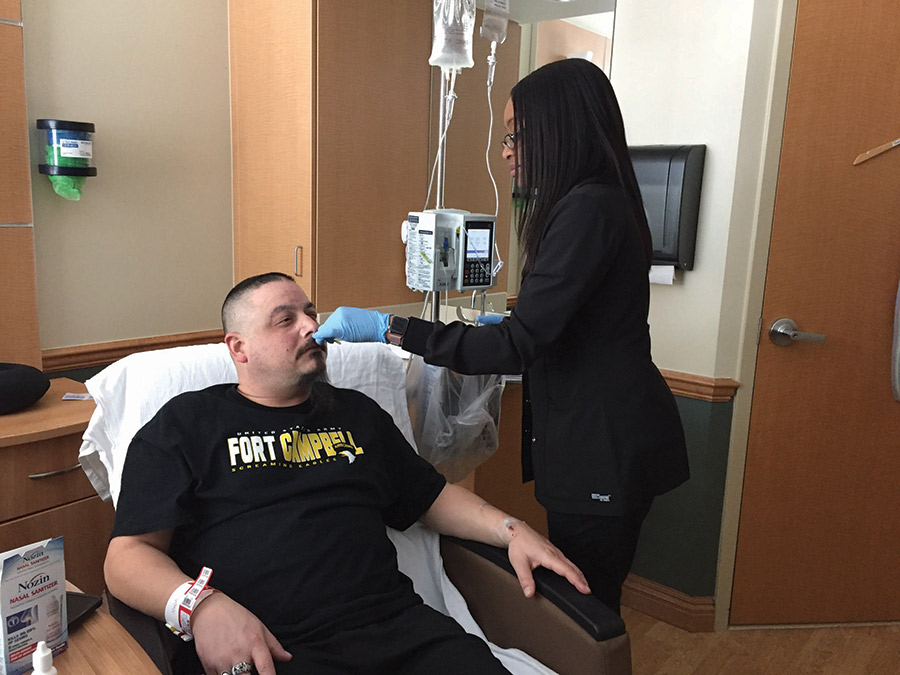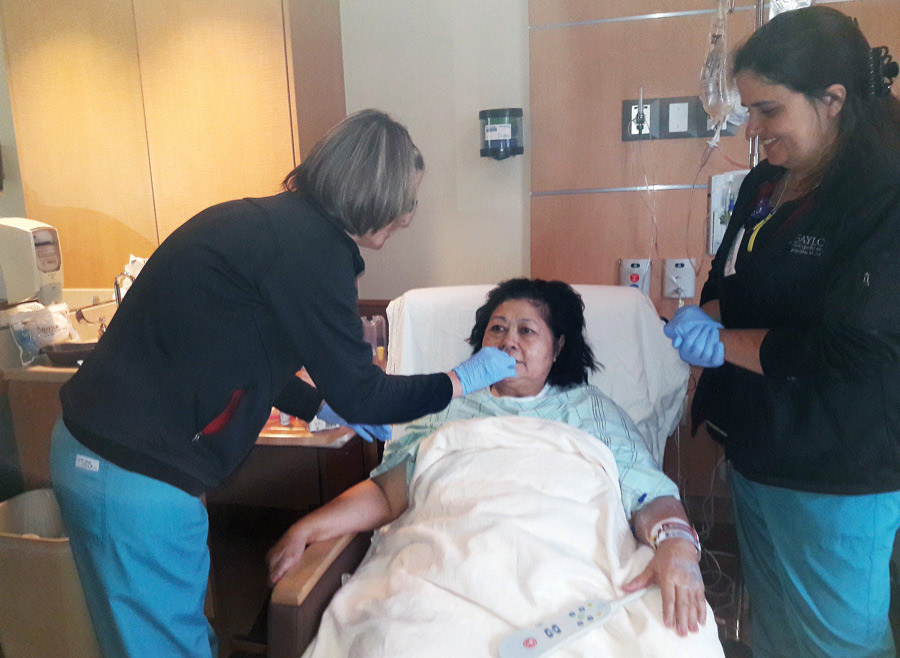Learn the answers before rolling out a nares-cleansing protocol.
 BY THE BOOK One way to ensure your nasal decolonization protocol is always followed: Perform random audits or make it part of the medical record.
BY THE BOOK One way to ensure your nasal decolonization protocol is always followed: Perform random audits or make it part of the medical record.
Ask any surgical leader who has successfully implemented a nasal decolonization program at their facility and they'll all tell you the same thing: In order for the process to work, it must be convenient for patients and staff alike. To make your protocol as efficient as possible, here are three questions to ask before embarking on your own decolonization mission.
- Should we decolonize all patients? You'll likely find different answers depending on whom you ask. For instance, some experts feel decolonization should apply to all patients, with a universal protocol for all individuals undergoing surgery. Others, such as Maureen May, RN, BSN, director of surgical services at Ascension St. Vincent Carmel and Fishers in Indiana, limit decolonization to "anyone receiving an implant." Establish your facility's criteria from the get-go.
- How do we find time to do it? It takes only about a minute to decolonize the nares, but we all know how precious minutes can be in high-volume facilities. To ensure the protocol is always followed, perform random audits or make it part of the medical record. "Nasal decolonization is in the nursing documentation and is part of our SSI surveillance program," says Jeri Culbertson, RN, BSN, CIC, director of infection control and sterile processing at Black Hills Surgical Hospital in Rapid City, S.D.
- How do we explain the process to our patients? The last thing you want to do is confuse or worse, frighten, alreadyanxious patients by sticking a wet substance up their nose preoperatively. Instead, thoroughly explain the decolonization process to every individual whose nares will be decolonized, making sure the message is fully understood. "Discuss that germs live in the nose and people rub their nose unconsciously many times throughout the day," says Ms. Culbertson. "This treatment will lessen the risk of transferring germs from their nose to their surgical incision."
Ultimately, the more effort you put into planning your decolonization program, the more smoothly it'll run for your staff and patients in practice. The benefits are well worth it in the long run. Teresa M. Salley, RN, MS, MSN, perioperative manager at Sycamore Hospital in Miamisburg, Ohio, sums it up perfectly: "Nasal decolonization is a simple, low-cost way to help reduce infection risk."
.svg?sfvrsn=be606e78_3)



.svg?sfvrsn=56b2f850_5)